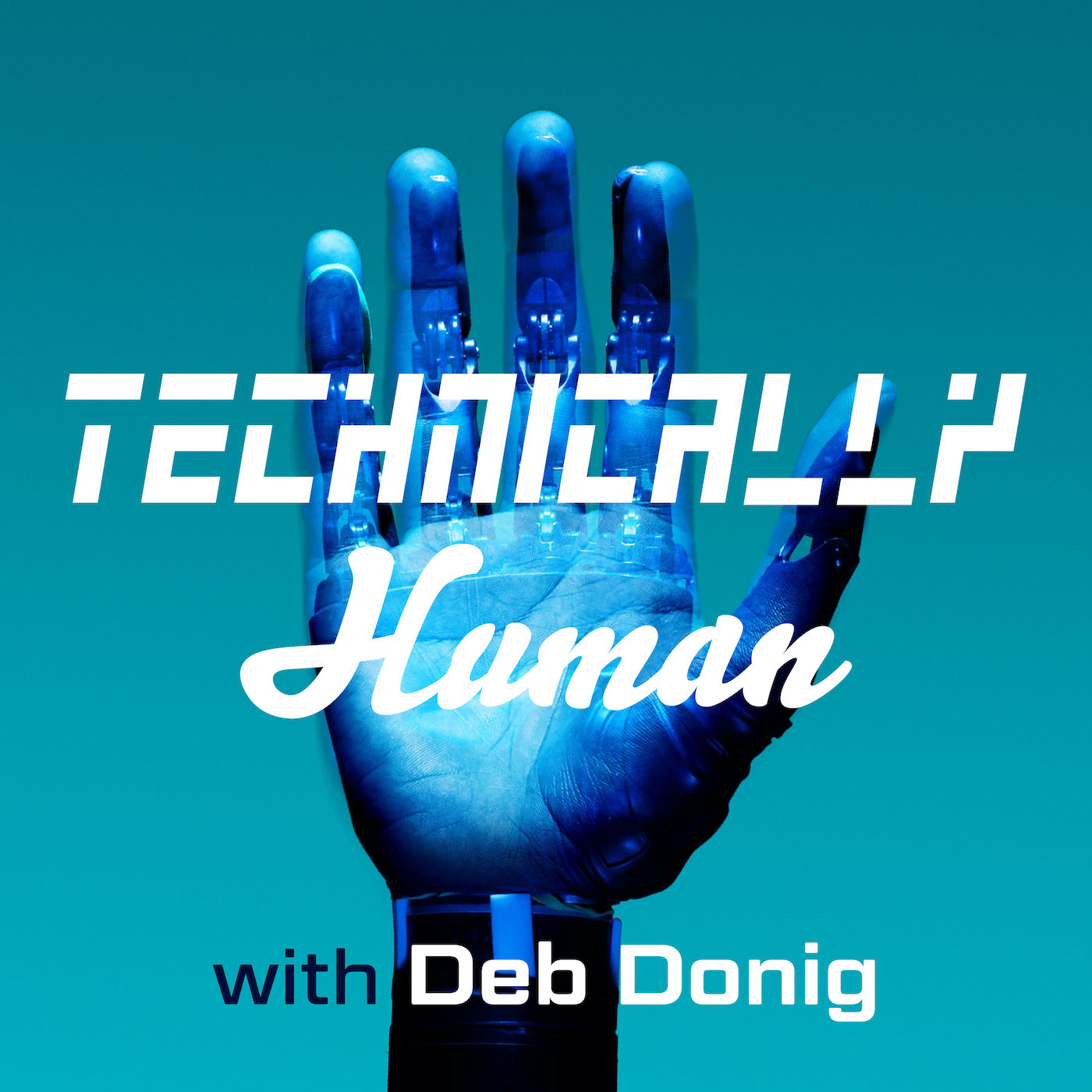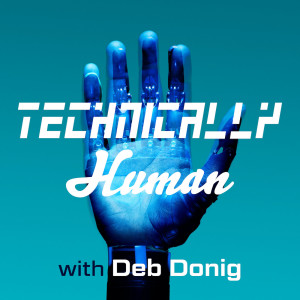
Technically Human is a podcast about ethics and technology where I ask what it means to be human in the age of tech. Each week, I interview industry leaders, thinkers, writers, and technologists and I ask them about how they understand the relationship between humans and the technologies we create. We discuss how we can build a better vision for technology, one that represents the best of our human values.
Technically Human is a podcast about ethics and technology where I ask what it means to be human in the age of tech. Each week, I interview industry leaders, thinkers, writers, and technologists and I ask them about how they understand the relationship between humans and the technologies we create. We discuss how we can build a better vision for technology, one that represents the best of our human values.
Episodes

Friday Oct 02, 2020
Friday Oct 02, 2020
In this episode of “Technically Human,” I sit down with Dr. Todd Presner to talk about ethics, algorithms, and the future of digital innovation. We discuss the need for technologists and humanists to work collaboratively together across disciplinary divides and specializations to solve complex problems, we discuss the consequences of automating the status quo, and we grapple with the ethical questions that algorithms evoke. How do we make algorithms accountable to the public? Just because we can automate something, should we? And how can we imagine differently, toward better possibilities, toward a world that we all want to live in, and in which we can all live generatively?
Professor Presner is the Chair of UCLA’s Digital Humanities Program and the Ross Professor of Germanic Languages and Comparative Literature.
His work at the intersection of tech and ethics includes Digital_Humanities (published by MIT Press, 2012), co-authored with Anne Burdick, Johanna Drucker, Peter Lunenfeld, and Jeffrey Schnapp, which proposes a critical-theoretical exploration of the emerging field of digital humanities, and HyperCities: Thick Mapping in the Digital Humanities (Harvard University Press, 2014), with David Shepard and Yoh Kawano, which explores digital cultural mapping using the HyperCities project, awarded the “digital media and learning” prize by the MacArthur Foundation/HASTAC in 2008.
Since 2018, Dr. Presner is the Associate Dean of Digital Innovation in the Division of Humanities and Adviser to the Vice-Chancellor of Research for Humanities, Arts, and Social Sciences research.

No comments yet. Be the first to say something!